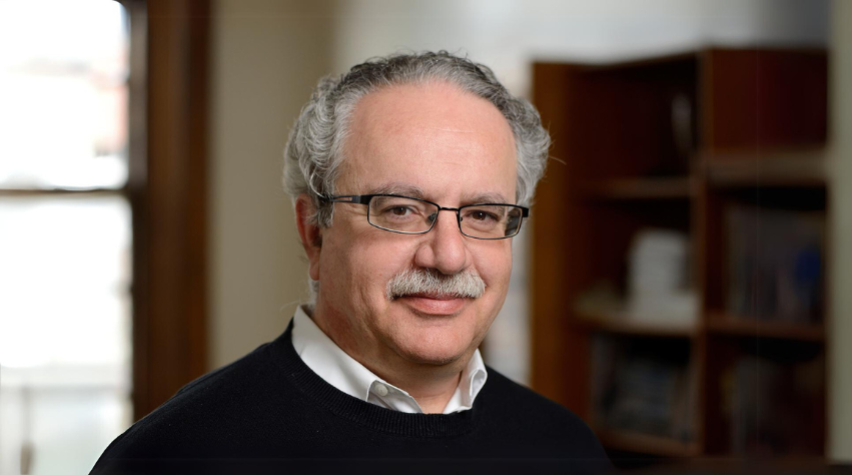
First presented in 1935, the William H. Walker Award for Excellence in Contributions to Chemical Engineering Literature is named for William Hultz Walker (1969–1934), a founder of the chemical engineering discipline who in 1916 established the School of Chemical Engineering Practice at the Massachusetts Institute of Technology. The Walker Award is presented to a member of AIChE who has made outstanding contributions to the field’s literature. The award is sponsored by John Wiley & Sons.

The recipient of the 2023 William H. Walker Award is Ioannis (Yannis) Kevrekidis, the Bloomberg Distinguished Professor in the departments of Chemical and Biomolecular Engineering and Applied Mathematics and Statistics at Johns Hopkins University. He is being honored for transformative contributions to chemical engineering modeling, integrating physical insight with data-driven/machine learning approaches, as well as modern scientific computation for complex, multiscale systems.
Dr. Kevrekidis and the other Institute and Board of Directors’ Award recipients will receive their honors during the 2023 AIChE Annual Meeting, November 5–10 in Orlando, Florida.
For transformative contributions to chemical engineering modeling, integrating physical insight with data-driven/machine learning approaches, as well as modern scientific computation for complex, multiscale systems.
About Kevrekidis and his work
Ioannis Kevrekidis’s research centers on the dynamic behavior of physical, chemical, and biological processes; the types of instabilities they exhibit; the patterns they form; and their computational study. Recently, his explorations have turned to multiscale computations and the modeling of complex systems. Along with his students and collaborators, he developed what he calls the “equation-free” approach to complex systems modeling, and he is working on linking it with modern data mining/machine learning techniques in an “equation-free and variable-free” approach.
While Kevrekidis collaborates extensively with experimentalists, his group’s focus is modeling and algorithm development applied to the study of complex dynamics. This interdisciplinary work includes applications ranging from protein folding to electrochemistry, and from reaction engineering to network theory. It also features components of high performance computing, as well as a data science and machine learning component.
Dr. Kevrekidis’s work has been transforming the way scientists and engineers perform computer-assisted modeling of complex systems — both through new algorithmic techniques, and through targeted applications such as accelerated molecular dynamics, or nonlinear system identification.
Recently, his group used machine learning techniques to intelligently bias molecular dynamics simulations that accelerate folding computations for proteins, elucidating the mechanism that controls saturated vs. unsaturated lipid synthesis in yeast. In collaboration with researchers from Germany, Israel, and Yale University, the group also demonstrated the extraction of useful “quantities of interest” and dynamic equations connecting them— i.e., the apparent discovery of physical laws from information-rich data — even when it was not known how the measurements correspond to physically important variables.
Kevrekidis is a member of the U.S. National Academy of Engineering and the National Academy of Arts and Sciences. He has also been a Packard Fellow, an NSF Presidential Young Investigator, and a Guggenheim Fellow. Numerous past honors include several from AIChE, including the Allan P. Colburn Award, the R.H. Wilhelm, and the Computing in Chemical Engineering Award. In 2015, he was elected a corresponding member of the Academy of Athens. He also holds a career Teaching Award from the School of Engineering at Princeton University.
Kevrekidis earned his BS in chemical engineering at the National Technical University in Athens and a PhD in chemical engineering and materials science at the University of Minnesota. Prior to joining Johns Hopkins in 2017, he served as the Pomeroy and Betty Perry Smith Professor in Engineering at Princeton, where he was professor of Chemical and Biological Engineering, senior faculty in Applied and Computational Mathematics, and associate faculty member in Mathematics.
This fall, ChEnected is presenting profiles of all the 2023 Institute and Board of Directors’ Award recipients. Visit ChEnected regularly to meet the honorees.


